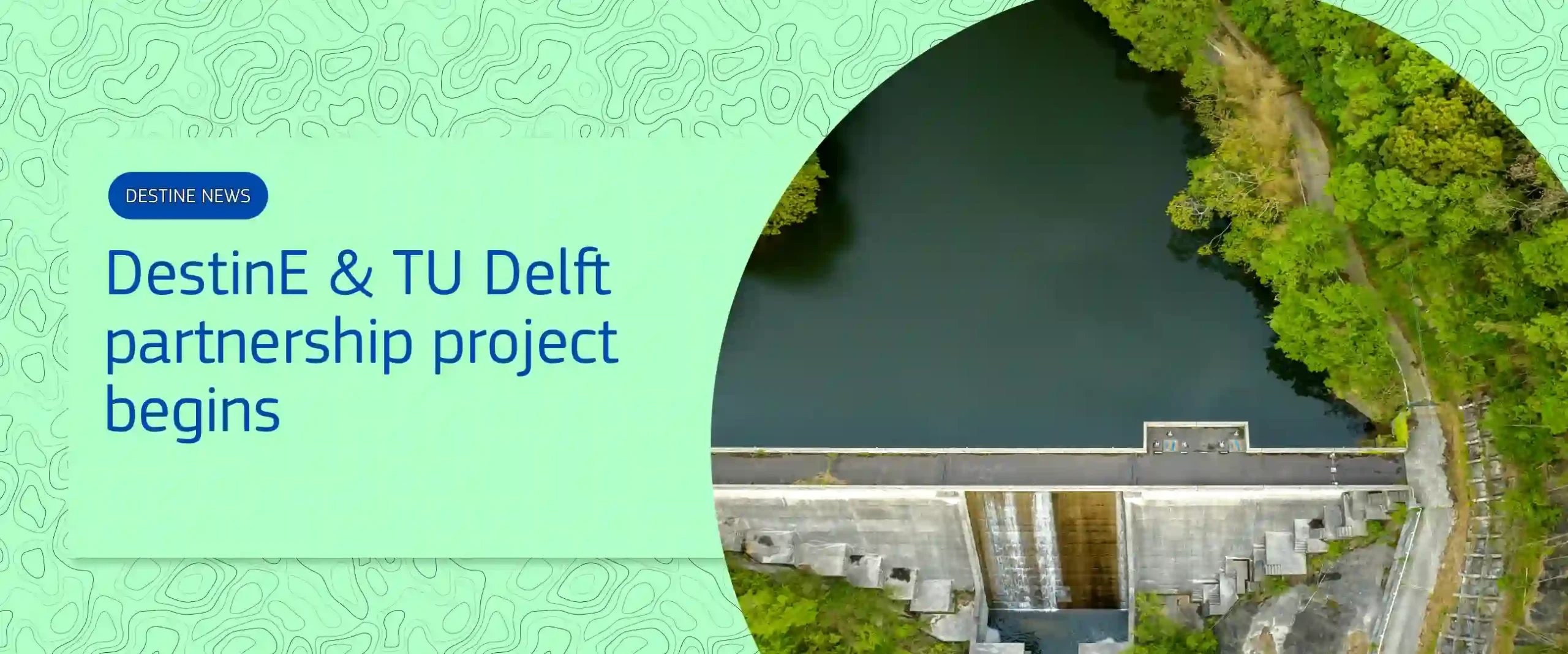DestinE Partnership Project Kicks off with TU Delft

We are excited to announce that the 1st official DestinE partnership was signed on 21st March 2024!
The partnership, between DestinE and TU Delft, leverages TU Delft’s extensive expertise across a range of domains critical to the DestinE community.
Why a partnership between TU Delft and DestinE?
DestinE has the ambition to develop digital models of the Earth that can predict environmental disasters and their impact on society with an unprecedented level of detail. By establishing a partnership with TU Delft, DestinE provides its community access to TU Delft’s extensive expertise and ongoing projects in key areas crucial for DestinE’s development, including impact modelling, co-design, and the combination of data and models through data assimilation. Conversely, this partnership enables TU Delft researchers to integrate their scientific developments directly with DestinE’s digital models and interfaces, thereby extending these innovations to all DestinE users.
As an initial use case that showcases the benefits of this partnership, DestinE and TU Delft will make eWaterCycle available on the DestinE platform.
What is eWaterCycle?
eWaterCycle is an open-source modelling framework for the water cycle. Used as an educational tool in Dutch universities, it supports Open and FAIR hydrological modelling. The framework achieves this by standardising the interfaces between hydrological model input data and the models themselves. eWaterCycle leverages ESMValTool, a community-developed climate model analysis tool to establish a streamlined input-processing-modelling-analysis pipeline. This not only makes the model creation process more transparent and reproducible, but also makes it possible to run different hydrological models using standard software stacks. ModelsSoftware applications that represent different aspects of th More can interact through the community-standard Basic Model Interface (BMI). This implementation serves as a prime example of the DestinE and TU Delft partnership, showcasing significant potential for the DestinE PlatformSelf-standing DestinE system component, interfacing with the More to enhance its commitment to Open and FAIR principles and to ensure its compatibility with standard software tools.
What are the broader aims of this use case in the partnership?
The integration of eWaterCycle into the DestinE PlatformSelf-standing DestinE system component, interfacing with the More aims not only to introduce the first educational resource, but also to establish a precedent for incorporating additional educational resources. The main outcome of this initial use case will be to identify the necessary resources for successful software integration, which will involve developing a detailed roadmap based on the insights gained from the eWaterCycle integration. By outlining key success indicators and strategising for the potential inclusion of other projects within DestinE, this roadmap will be instrumental in guiding future implementations.
Looking ahead, this partnership is set to leverage the broad expertise of TU Delft, and the wider research community, to further enhance the collaborative elements of DestinE.